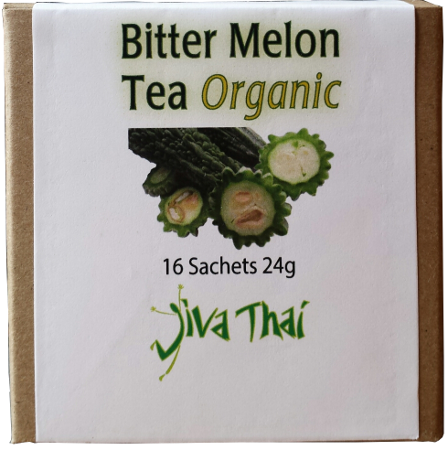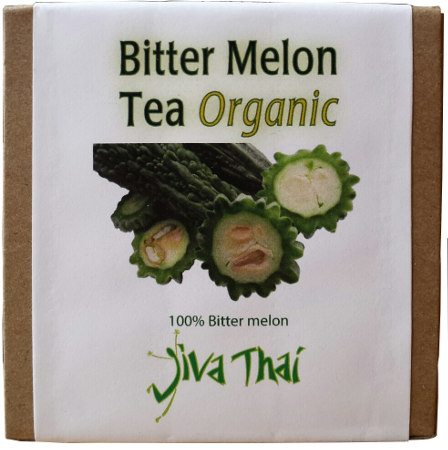 |
 |
Bitter melon or bitter gourd is grown through out the tropical and sub-tropical areas. Its bitter taste helps stimulates digestion and appetite.
The pods are rich in phytonutrients like dietary fiber, minerals, vitamins and anti-oxidants. Several health benefiting flavonoids and minerals have been identified in bitter melon, for example, beta-sitosterol-d-glucoside, citrulline, GABA, lutein, lycopene and zeaxanthin, ß-carotene, α-carotene, calcium, potassium (twice of bananas), vitamin A, C, B1, B3, B5, B6, phosphorus, iron, zinc, potassium, manganese and magnesium.
Bitter melon can be a powerful anti-diabedic (type 2). Polypeptide-P is one the phytonutrients in bitter melon that is known to lower blood sugar levels. It composes hypoglycemic agent called charantin which increases glucose uptake and glycogen synthesis in the cells of liver, muscle and adipose tissue.
Other studies show that it is also effective in treating HIV/AIDS, cold and flu, viruses, cancer and tumors, high cholesterol, cardioprotective, and psoriasis.
Cautions: high doses of bitter melon can cause abdominal pain and diarrhea. It is not suitable for small children, pregnant women (due to its abortative properties), and people with hypoglycemia. Diabetic patients taking hypoglycemic drugs (chlorpropamide, glyburide, phenformin, etc) or insulin should use bitter melon only under medical supervision.


